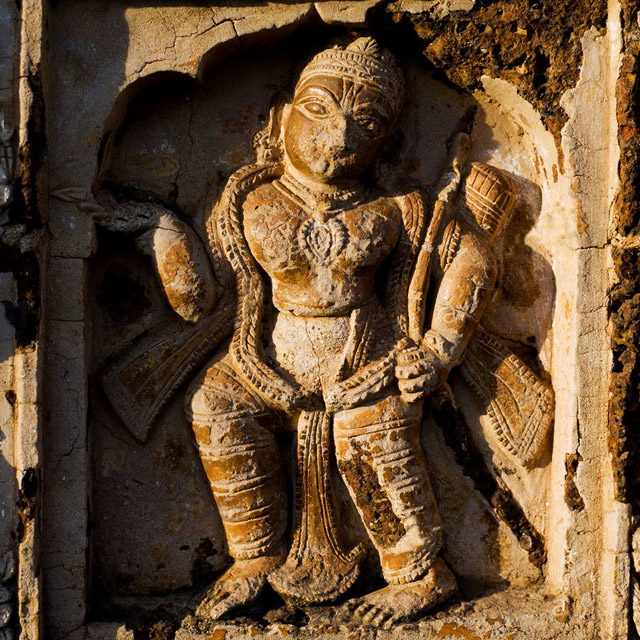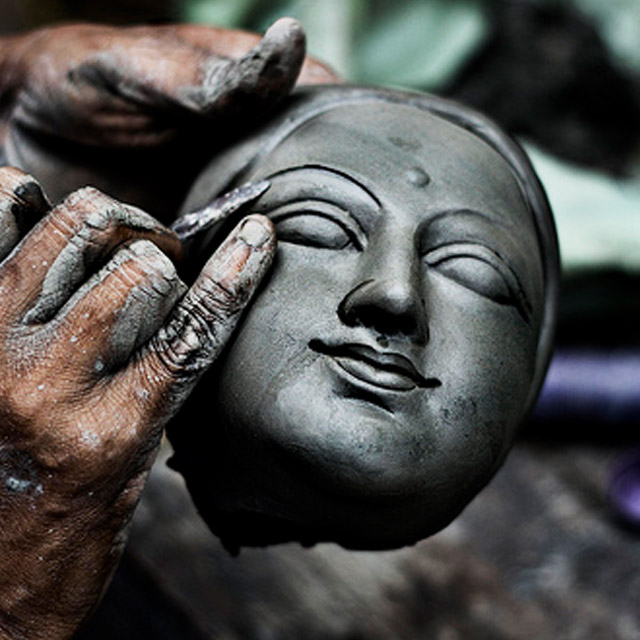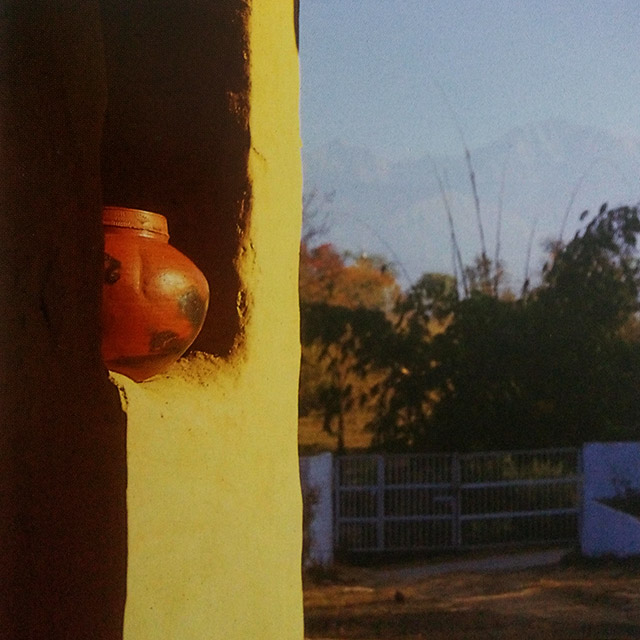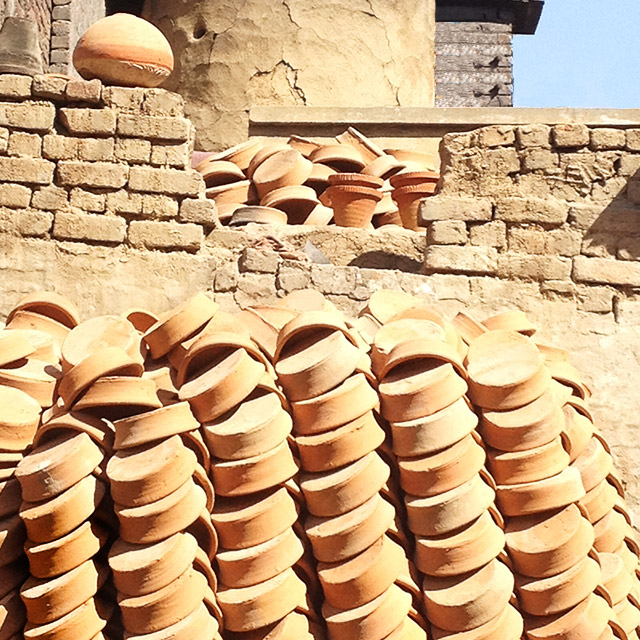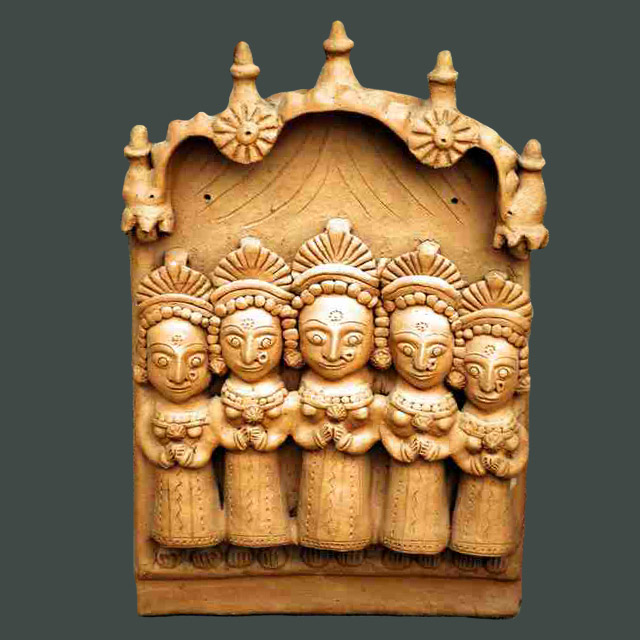
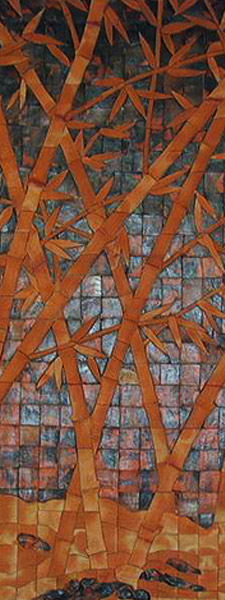

ARUVACODE POTTERY
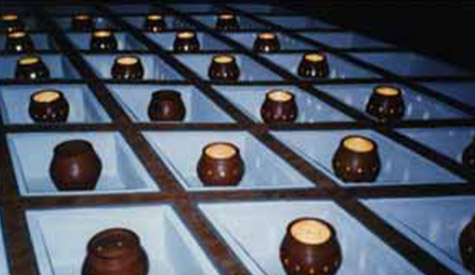
Aruvacode, a hamlet in Kerala, is today an important centre for art, craft and architectural designs practised by a "peripheral people". For artist K.B. Jinan, who helped these people reassemble their lives, it was a return to a collective past.
An engineer by profession and a diploma holder from the National Institute of Design, Ahmedabad; Jinan, during one of his visits to his hometown Thrissur, stopped at Aruvacode where he was told that a group of craftspeople- men and women- were struggling to preserve their identity by challenging the typical modern definition of art. He was amazed by their experimental technique of assembling everyday objects to reconstruct conventionally harmless and quintessentially Indian items. In their work he found several provocative issues; an appreciation of their own aesthetic traditions; a definition of art that included utilitarian objects for their flair by local inhabitants; and a celebration of the artist as opposed to the anonymously made objects.
He planned to stay for six months, which passed into six years. To probe, to sound out, to excavate the essence subjectively, to be sure of the creative work in question- whatever the discipline- was his goal.
For six long years, from 1987 to1992, he functioned like a high priest, collaborating with an almost-primitive people. Working in terracotta as one of the mediums and blurring the distinction between high art and handicrafts, he directed them like hunters to look for and wrest designs from nature- flowers, leaves, animals, insects, and butterflies. In this culture, creations were not gender specific, nor influenced by any existing craft form, not even a traditional floor design; but the final products were "highly original and roots to the soil". They were designs so universal that they could fit into a corporate office or a home and went beyond all traditional pottery. From this stage, the artisans went on to the next innovative stage of producing colourful tiles that could be collaged into murals, wall lamps, shades and garden lamps, all of which brought them into the mainstream of art and architecture.
Jinan has organised exhibitions to bring awareness among the Aruvacode craftspeople about the importance of market value. As the message of Aruvacode spread, the U.K. based Oxfam granted funds for development of fresh designs. The Foundation for Progress of Humankind, based in France, invited Jinan to make a presentation of the work done at Aruvacode, and the International Alternatives to Consumerism Secretariat of the Shanti Dhamma Institute of Thailand asked him to address a seminar at Bangkok.
Arvucode is approximately 60 Kms from Kozhikode and can be reached by car.
